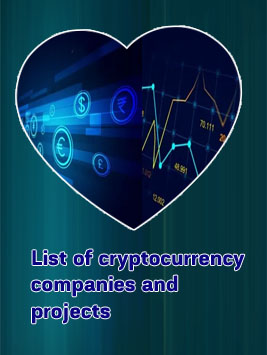
Cryptocurrency is a rapidly evolving market with new opportunities emerging constantly. For those looking to invest in the industry, it can be overwhelming to decide where to allocate funds. To help make this decision easier, we have compiled a list of 4 articles that provide valuable insights into the top cryptocurrencies to invest in now. These articles cover a range of topics including market trends, technology updates, and expert analysis to help you make informed investment decisions.

The world of decentralized finance, or DeFi, is rapidly gaining popularity among investors looking to diversify their portfolios and capitalize on the potential of blockchain technology. DeFi offers a decentralized alternative to traditional financial services, allowing users to access a wide range of financial products and services without the need for intermediaries.
One of the key reasons why investors should consider investing in DeFi is the potential for high returns. With decentralized lending, borrowing, and trading platforms, users can earn attractive interest rates and participate in liquidity pools to generate passive income. Additionally, the transparency and security provided by blockchain technology make DeFi a more trustworthy option for investors compared to traditional financial institutions.
Moreover, DeFi offers greater accessibility and inclusivity, allowing individuals from around the world to participate in the financial system regardless of their location or background. This democratization of finance has the potential to empower underbanked populations and promote financial inclusion on a global scale.
As the DeFi ecosystem continues to evolve and mature, investors have the opportunity to capitalize on this growing trend and potentially generate significant returns. By staying informed about the latest developments in the DeFi space and conducting thorough research before making investment decisions, investors can position themselves for success in this innovative and rapidly expanding market.
Ethereum 2.0 is set to revolutionize the world of smart contract platforms with its innovative technology and forward-thinking approach. This next-generation upgrade to the Ethereum blockchain promises to address scalability issues that have plagued its predecessor, making it a more efficient and secure platform for decentralized applications.
One of the key features of Ethereum 2.0 is the introduction of a proof-of-stake mechanism, which will replace the current proof-of-work consensus algorithm. This new approach will significantly reduce the energy consumption of the network while improving transaction speeds and overall performance. Additionally, Ethereum 2.0 will introduce sharding, a technique that partitions the blockchain into smaller, more manageable chunks, further enhancing scalability.
Several prominent figures in the cryptocurrency space have voiced their support for Ethereum 2.0, including Vitalik Buterin, the co-founder of Ethereum. Buterin has long been a proponent of scaling solutions for the Ethereum network, and Ethereum 2.0 represents a major step forward in achieving this goal.
As Ethereum 2.0 continues to develop, it is poised to become the go-to platform for smart contracts and decentralized applications. Its innovative technology, combined with the support of industry leaders, makes it a promising option for developers and users alike. The future of smart contract
As the cryptocurrency market continues to evolve and gain mainstream acceptance, investors are constantly on the lookout for the next big altcoin that could potentially offer high returns. In 2021, there are several altcoins that have caught the attention of the crypto community due to their innovative technology and strong growth potential.
One altcoin that is worth watching this year is Ethereum. As the second-largest cryptocurrency by market capitalization, Ethereum has established itself as a powerhouse in the world of decentralized finance (DeFi) and non-fungible tokens (NFTs). With the upcoming Ethereum 2.0 upgrade, which aims to improve scalability and security, many investors believe that the price of Ethereum could skyrocket in the near future.
Another altcoin that is generating a lot of buzz is Cardano. Known for its focus on sustainability, scalability, and interoperability, Cardano has been making significant strides in the blockchain space. With the recent launch of the Alonzo upgrade, which enables smart contract functionality on the Cardano network, many experts believe that Cardano has the potential to rival Ethereum in the long run.
One practical use case of investing in these altcoins is the potential for significant profit. For instance, an investor who bought Ethereum or Cardano at the beginning of the year and
In times of economic uncertainty, investors often turn to safe-haven assets such as Bitcoin and gold to protect their wealth. Both Bitcoin and gold have been touted as stores of value that can withstand market volatility and inflation. However, the debate over which is the better investment in uncertain times continues to rage on.
Bitcoin, a digital currency created in 2009, has gained popularity in recent years as a decentralized form of money that is not controlled by any government or central bank. Its finite supply of 21 million coins has led many to view it as a hedge against inflation. Proponents of Bitcoin argue that its scarcity and increasing adoption make it a valuable asset in times of economic uncertainty.
On the other hand, gold has been a traditional safe-haven asset for centuries. Its physical properties and scarcity have made it a popular choice for investors looking to preserve their wealth. Gold has a long history of retaining its value in times of crisis, making it a reliable store of wealth.
When comparing Bitcoin and gold as investments in uncertain times, it is important to consider their respective properties and historical performance. While Bitcoin has shown impressive price growth in recent years, its volatility and regulatory uncertainties may make some investors wary. Gold, on the other hand, has a long track record of stability and value